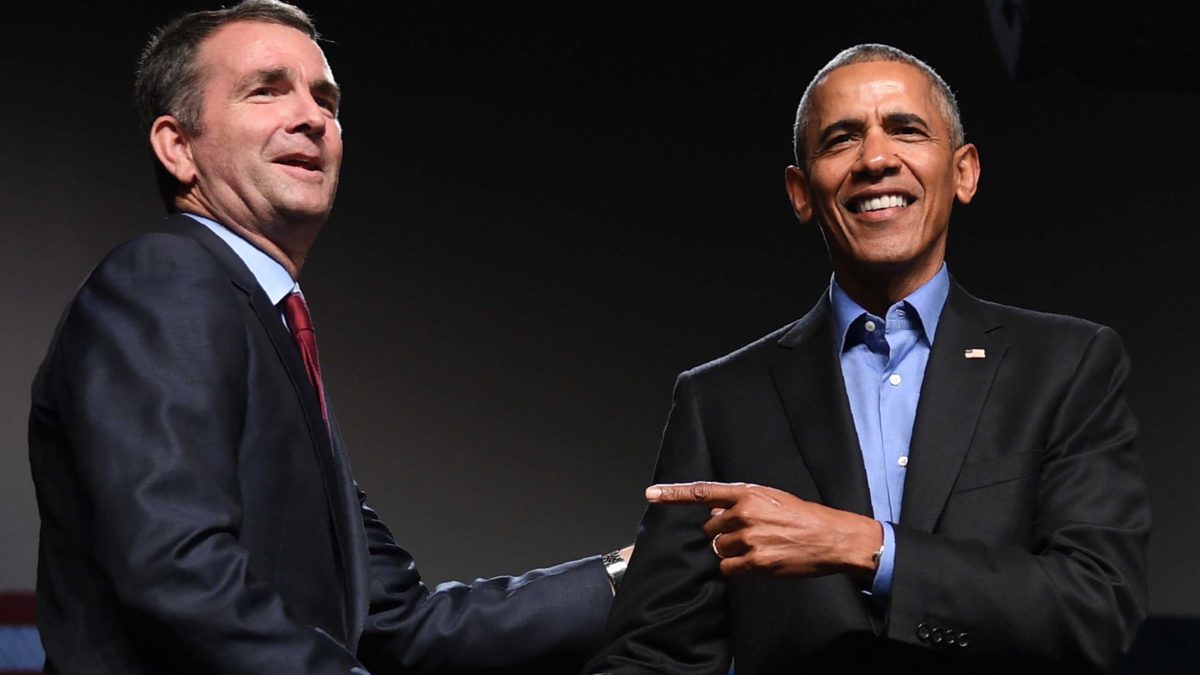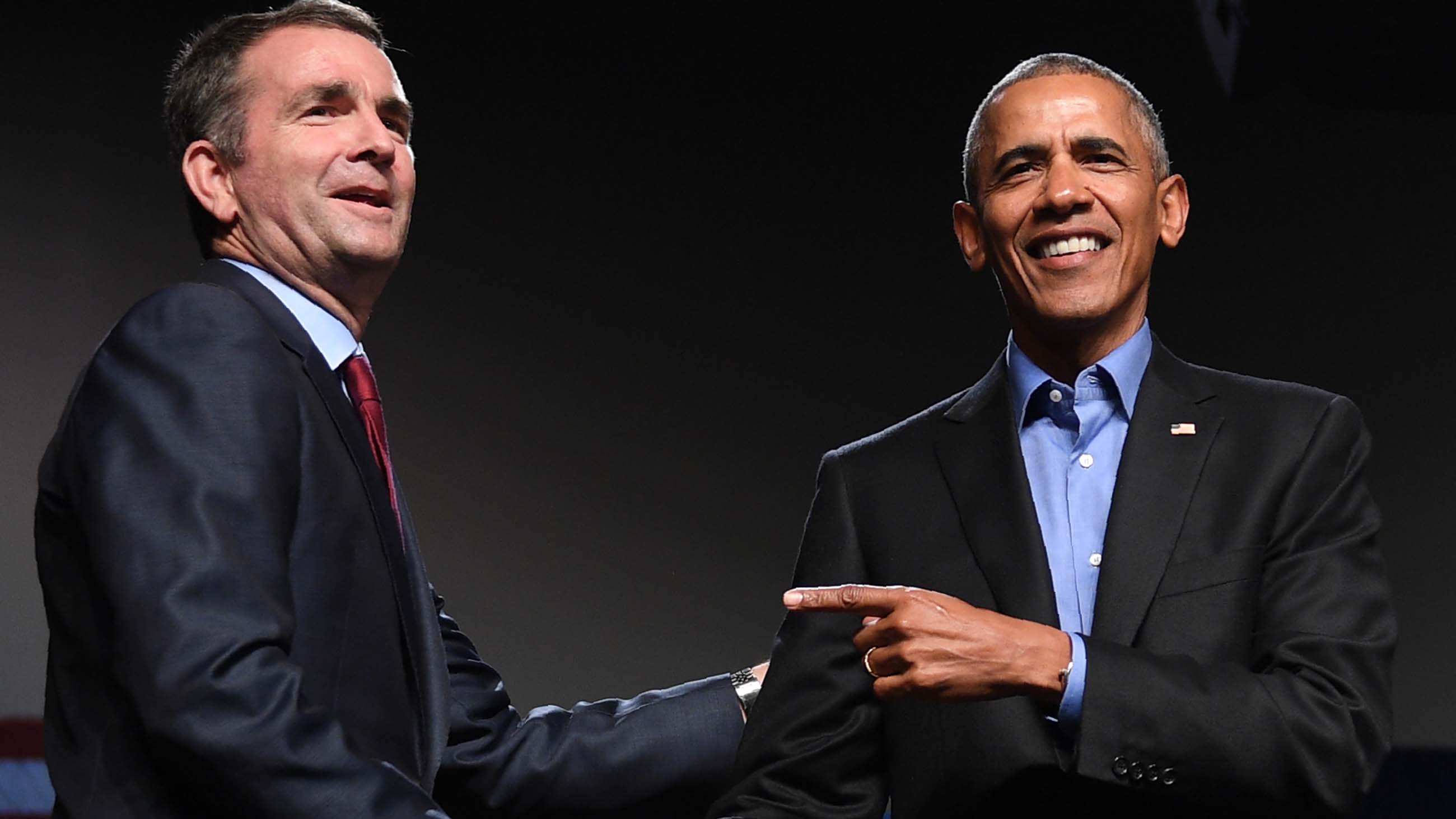Local Climate Action Surges While Washington Stalls
Despite the Democrats’ sweeping victories in the first November elections of Donald Trump’s presidency, it has been a mixed week or so for advocates of meaningful action to control climate change.

Ralph Northam, left, is Virginia’s next governor. But while he and other victorious Democrats may support Barack Obama’s climate policies, they can’t do much to bring them about.
Visual: Jim Watson/AFP/Getty Images
Most of the liberal-leaning politicians elected Tuesday doubtless accept the reality of human-caused climate change and support policies to address its causes and outcomes. But they will hold state and local offices, not federal ones.
And at the federal level, science-informed climate policy posted a win, a loss, and a probable draw.
The win: A federal program involving 13 government agencies released a report that strongly supported the decades of research affirming that the planet is warming because of human activity.
The loss: As expected, scientific advisory committees to the Environmental Protection Agency were stripped of several accomplished academic scientists and repopulated with members who work for or receive financing from oil and other regulated industries, who are not active scientists, or who hold antagonistic positions toward the agency, climate science, and/or regulations on carbon polluters.
The draw: The climate-science denier Rep. Lamar Smith, Republican of Texas, announced he would not run for re-election, opening up leadership of a congressional committee that has power over federal funding for science. If Republicans maintain control of the House in 2018, his replacement is all too likely to oppose climate science and mitigation policies.
The EPA move is of a piece with the Trump administration’s overall aversion to climate science and to policies that would slow global warming. In a statement on October 31, EPA Administrator Scott Pruitt said the removal of several academic scientists from the agency’s three scientific advisory panels would ensure that advisers are “independent and free from any real, apparent, or potential interference with their ability to objectively serve as a committee member.” This commitment justified removing advisers currently receiving research grants from the EPA, but apparently did not disqualify new advisers named last week who are paid by or receive financial backing from regulated industries.
“The administrator claims they were concerned about the objectivity of people holding research grants,” said H. Christopher Frey, an environmental engineer at North Carolina State University who is a surviving member of the EPA’s science advisory board. “But to then appoint members with either a very obvious strong political or an industry affiliation, or [who] have stated strong positions on issues, is an actual egregious conflict of interest — and really calls into question the impartiality of this collective group of appointees.”
Beyond the political stalemate in Washington, polls show that most Americans accept that the climate is changing, want government to do something about it, and support U.S. participation in the Paris climate agreement that Trump plans to ditch.
And the rise of local action to curb global warming is not trivial. One research team reported in September that more than 500 local and state governments, 3,000 businesses, and 700 universities in the U.S. had taken some action to mitigate climate change. The combined impact of state, city, and company actions would take the U.S. more than halfway to meeting the high end of its Paris commitment to reduce greenhouse gas emissions, according to a September report by the New Climate Institute.
The “carry on” attitude likely resonates with several returning members of EPA scientific advisory panels. Frey says he considered stepping down after the membership reshuffle, but “there is more need now than before to keep people on the board who don’t have these attributes of conflicts. So I’m willing to stay with it for now.”










